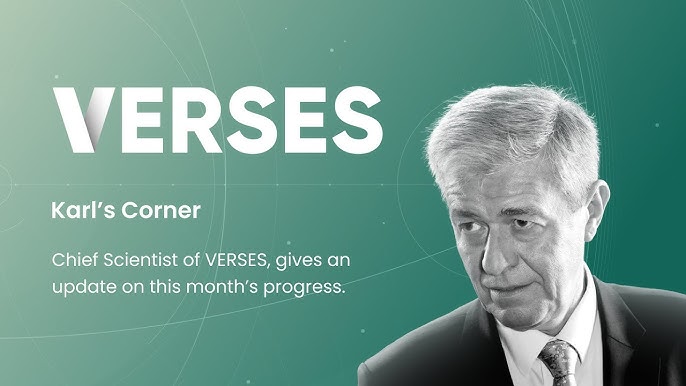VERSES’ AXIOM Outperforms DeepMind in Real-Time Adaptive AI

A New Milestone in Adaptive AI: VERSES’ AXIOM Sets Efficiency Benchmark
A major breakthrough has just been announced in the rapidly evolving landscape of artificial intelligence. VERSES, an emerging leader in adaptive intelligence, revealed that its AXIOM model has surpassed Google DeepMind’s DreamerV3 on the challenging Gameworld-10k benchmark. This marks a critical leap for real-time, cost-effective AI reasoning, underscoring a shift away from brute-force large language models (LLMs) toward cognitive architectures that can learn and adapt on the fly[4].
Real-Time Reasoning—5,000× More Cost-Effective Than OpenAI’s Leading Model
The AXIOM engine has been independently audited and shown to outperform DeepMind’s established DreamerV3 in both fewer training steps and higher scores on complex virtual environments. Even more striking: researchers such as Devansh have documented AXIOM achieving results 5,000 times more cost-effective than OpenAI’s o1, shattering previous assumptions about the inherent trade-off between intelligence and computational expense[4]. Unlike traditional LLMs that require retraining or offline updates, AXIOM adapts its internal model in real time, enabling sustained performance in unpredictable scenarios.
Beyond Deep Learning: Active Inference and Coordination
Critics of today’s generative AI have long warned that mere scaling does not equate to true intelligence—a view validated by recent underwhelming performances from industry leaders[4]. The VERSES team has seized on this moment, championing alternatives rooted in active inference. Their agents can coordinate and share skills in live environments, as demonstrated in an energy management simulation where digital agents autonomously lowered costs and energy usage across entire districts.
A Paradigm Shift for Robotics and Embodied AI
One of the most striking demonstrations of AXIOM’s capabilities came in the renowned Habitat 2.0 robotics simulation—regarded as the gold standard for embodied artificial intelligence. Here, robots powered by AXIOM achieved top-tier performance without the need for massive retraining cycles, a common bottleneck for rival systems. Continuous learning methods like VERSES’ Gaussian Splatting allowed their perception systems to update 2D and 3D world models seamlessly and avoid the catastrophic forgetting that plagues old-guard solutions[4].
Looking Forward: Is Adaptive Intelligence the Future of AI?
Industry analysts—including Gartner, which honored VERSES as a sample vendor for spatial computing and world modeling—signal a clear inflection point: architectures that center on adaptation, real-time reasoning, and agentic intelligence are poised to eclipse static, costly LLMs[4]. As AI researcher Devansh notes, the field “has already shifted,” and front-line practitioners echo this, framing VERSES architecture as a blueprint for the coming decade of intelligent systems. With efficiency, adaptability, and collaboration as its hallmarks, AXIOM’s breakthrough performance may well serve as a bellwether for an AI future built not merely on scale, but on true cognitive engineering.
How Communities View VERSES’ AXIOM Breakthrough
VERSES’ AXIOM model overtaking DeepMind’s DreamerV3 has ignited lively debates across major AI forums. Community reactions reflect a sharp divide around the implications for AI’s future.
-
Skeptics of Scaling (about 40%): Many on r/MachineLearning and X/Twitter (@garymarcus, @dohertyAI) point to this as evidence the era of brute-force LLM scaling is waning. Advocates highlight AXIOM’s 5,000× cost-efficiency, interpreting it as "the first real proof that intelligence isn’t about trillions of parameters."
-
Cautious Optimists (about 35%): AI researchers and practitioners, including @devansh and several robotics engineers on LinkedIn, praise AXIOM’s benchmarks but warn that simulation wins must translate to unpredictable real-world deployments. Key comments: "Active inference is promising, but let's see it power autonomous vehicles or logistics at scale."
-
VERSES Evangelists (about 15%): Practitioners working with agentic AI (e.g., @Denis_O) tout this as a validation of alternative architectures. They cite superior collaboration and continual learning observed in pilot energy grid projects, framing VERSES as the blueprint for next-generation embodied intelligence.
-
Curious Spectators (about 10%): A mix of students, industry observers, and nontechnical founders are watching intently, with questions about open-sourcing, documentation, and when the tech will hit consumer products.
Overall, industry sentiment leans positive. Notable experts like @garymarcus see the development as "proof the field is ready to move beyond next-token prediction towards adaptive, agentic cognition." Tech leaders are closely tracking if this approach will scale out of research and into real-world impact.